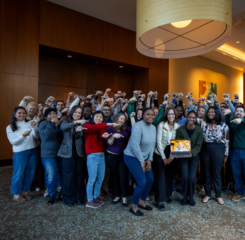Older adults are the fastest-growing age group of those experiencing homelessness, composing nearly half of the homeless population, according to an October 2023 Department of Health and Human Services HHS report, “Addressing Homelessness Among Older Adults: Final Report.” And the number of older adults experiencing homelessness is expected to triple by 2030, the report says.
The HHS Office of Behavioral Health, Disability and Aging Policy and the HHS Office of the Assistant Secretary for Planning and Evaluation report shows that compared to their housed counterparts, older adults experiencing homelessness have higher rates of health service utilization and more health and health-related concerns, including:
- significantly shorter life spans;
- higher prevalence and severity of physical and geriatric conditions like memory loss, falls, difficulty performing activities of daily living, cognitive impairment, and functional impairments;
- more complex health needs, comparable to housed individuals who are 10-20 years older;
- and higher rates of mental health and substance use disorders.
In a section on innovative programs to address the specific challenges older adults experiencing homelessness face, the report refers to the work of three LeadingAge members: the Hearth program in Boston, MA; Serving Seniors in San Diego, CA; and, St. Paul’s Programs of All-Inclusive Care for the Elderly (PACE) program in San Diego, CA.
“Access to housing assistance can be difficult given the current lack of availability and the high and growing demand among low income older adults. Consequently, large numbers of older adults who are eligible for rental assistance either have a long wait time for assistance or do not end up receiving the assistance,” the report says.
The report makes a variety of recommendations, including the need for more affordable housing for older adults at risk or experiencing homelessness. In particular, the report notes a need for more permanent supportive housing as well as other subsidized housing for older adults, including the HUD Section 202 Supportive Housing for the Elderly and Housing Choice Voucher (Section 8) programs.

 Shutdown Week Three: Impact of Ongoing Closure on Affordable Housing
Shutdown Week Three: Impact of Ongoing Closure on Affordable Housing LeadingAge Joins CMS' Oz in Hospice, Home Health Fraud Roundtables
LeadingAge Joins CMS' Oz in Hospice, Home Health Fraud Roundtables


